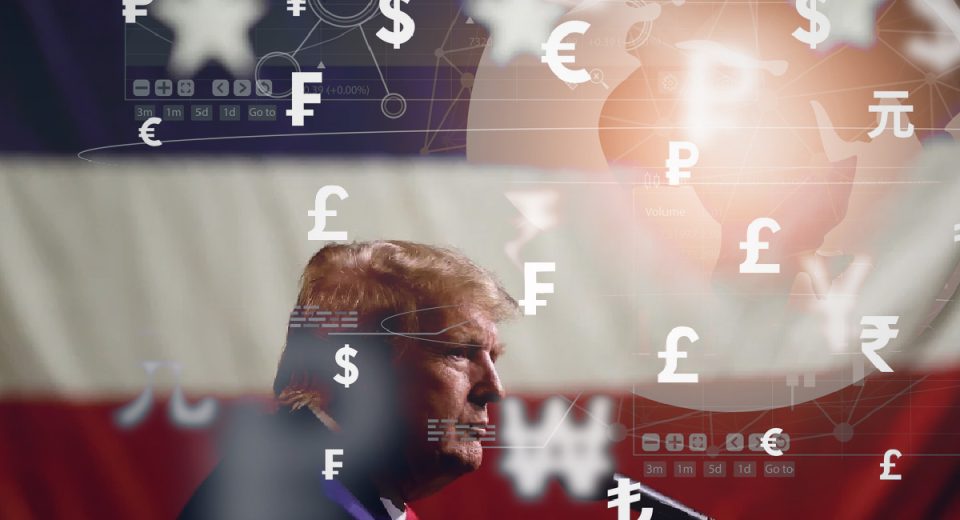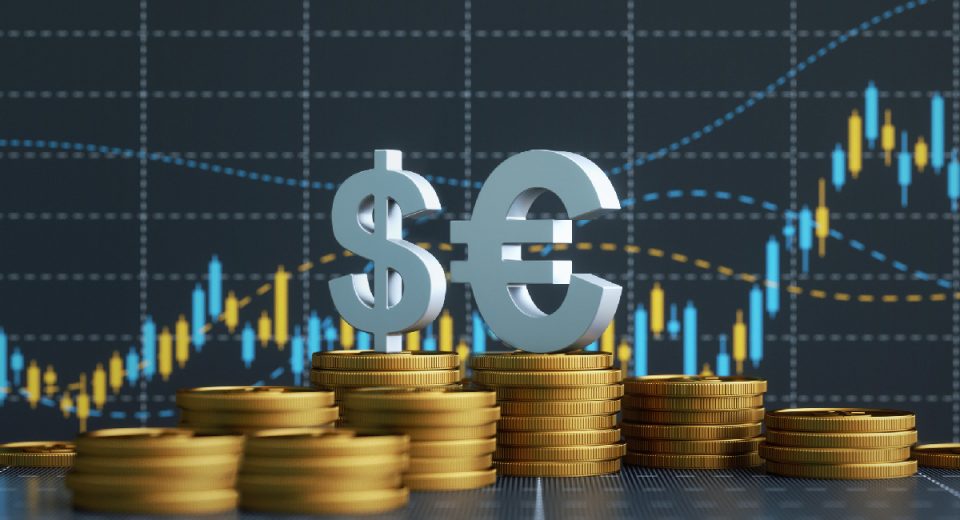Will France’s Hung Parliament Impact the Euro?

Following on the heels of the UK’s snap general election announcement, French President Emmanuel Macron called for a snap legislative election on June 9. The results, which were declared on July 7, were not as definitive as those in the UK. In fact, no party secured an absolute majority in the National Assembly, ushering in a period of uncertainty for the European Union’s second-largest economy.
So far this year, the euro has remained relatively stable compared to the US dollar, British pound and Japanese yen. There are several factors influencing the trajectory of the euro. Let’s take a look at how the outcome of the French elections impacted the EUR/USD and what factors could play out in the forex market.
How the French Election Outcome Affected the EUR/USD
Being a common currency for the EU, the euro will be impacted by a national government that comprises the centre-left Socialists, the Centre-right Republicans, and Macron’s centrists (previous President). Therefore, investors will continue to weigh in on every news on the political front.
Heightened uncertainty and a hung parliament hit many forex pairs:
- EUR/GBP maintained the multiweek decline and hit 0.846 on the day after the poll results.
- EUR/JPY, which had taken a slight dip after the results of the first round, resumed the uptrend and closed trading on the Monday after the election in the green at 174.06.
- EUR/CHF moved in lockstep with EUR/JPY and closed the day at 0.973.
- DXY (US dollar index) lost 0.05%, hitting a 3-week low, after the markets factored in the possibility of a rate cut with the hung French parliament.
Negotiations Going Left, Right, and Centre
Just forming the government with no party securing a majority involves complex negotiations. Thereafter, every policy could see an intense tug-of-war before being finalised, as each party has a different set of ideologies. The New Popular Front (NFP), which has won the largest number of seats (188), is leftist. Ensemble (161 seats) is a centrist coalition, while National Rally (142 seats) is a far-right party. Torn between pro-EU (left and centre) and nationalist (right) ideologies, the government could take much longer to decide on important matters like the policy towards China or the green transition.
Such delays could negatively impact France’s economy, exerting pressure on the euro.
Stance Towards Interest Rate Cuts
The ECB (European Central Bank) already reduced its repo rate in June. This was welcomed by Macron’s party, which has reformist ideologies. The hung parliament in France could give mixed signals for further rate cuts.
Meanwhile, the US Federal Reserve is feeling the pressure to cut rates soon, after the release of a soft jobs report. The Fed has been reluctant to cut rates before inflation has been tamed.
Any change in the interest rate differential will have a direct impact on the EUR/USD.
Easing of Fiscal Policy Remains a Cause of Concern
While voters did not give a clear majority to the National Rally, the left’s efforts in lowering the country’s budget deficit have been far from effective. A recent report by S&P Global Ratings highlighted the existing government’s failure in curtailing the budget deficit.
The EU and other experts believe that a budget cut of $20 billion to $30 billion is needed to curb the deficit. However, the Left-Centrist coalition has expressed its commitment to fiscal policy easing. The left coalition’s manifesto included reversing pro-business reforms and raising the minimum wage. This could translate to higher public spending, adding to uncertainties around the euro’s performance in the forex market.
Overwhelming French Debt
France has a budget deficit of 5.5% of the economic output. This significantly exceeds the EU-permitted 3% limit. The European Commission had announced disciplinary action on the French Republic in case the government failed to reduce this deficit.
While the IMF predicts global debt to rise to 112% in 2024, the EU is trying its best to prevent the region from becoming a debt hub. Despite the combination of a worrisome deficit and a hung parliament in France, the EUR/USD maintained the gains of the previous week at 1.082. The US payroll data coming in softer than expected and investors speculating a Fed rate cut soon may have added to the strength of the euro.
Silver Lining in European Skies
A government of compromise means that extreme policies are not on the horizon. A cap on public spending may reduce the spreads and improve investor interest in the euro. Weighing these factors, the CAC 40 (France 40) rallied 0.8%, after declining by 0.6% in trading soon after the poll results showed confidence in the euro. Yet, the left wing having the highest presence in the assembly without a clear success, points to a gridlock on the presidential seat. The EUR/USD may remain volatile till the government is formed and its position on fiscal policies clarified. This is primarily because the New Popular Front (NPF, an alliance of Socialists, Ecologists, Communists and France Unbowed) has not won with a clear majority.
Takeaways for Forex Traders
The forex market may continue to be volatile till there is uncertainty around the French parliament. The key is to refine your FX strategies to make the most of this volatility. Forex traders will watch the following releases to make informed decisions and take advantage of opportunities:
- Fed interest rates
- ECB interest rates
- US payrolls data
- French government’s fiscal policy
To Sum Up
- Lack of clarity on fiscal policy due to the hung parliament in France continues to trigger volatility in the forex market.
- France’s fiscal policy could significantly impact market sentiment for the euro.
- More effective efforts by France to lower its budget deficit and public spending could support the EUR/USD.
- Forex traders must watch key calendar events and news to refine their FX strategy.
Disclaimer:
All data, information and materials are published and provided “as is” solely for informational purposes only, and is not intended nor should be considered, in any way, as investment advice, recommendations, and/or suggestions for performing any actions with financial instruments. The information and opinions presented do not take into account any particular individual’s investment objectives, financial situation or needs, and hence does not constitute as an advice or a recommendation with respect to any investment product. All investors should seek advice from certified financial advisors based on their unique situation before making any investment decisions in accordance to their personal risk appetite. Blackwell Global endeavours to ensure that the information provided is complete and correct, but make no representation as to the actuality, accuracy or completeness of the information. Information, data and opinions may change without notice and Blackwell Global is not obliged to update on the changes. The opinions and views expressed are solely those of the authors and analysts and do not necessarily represent that of Blackwell Global or its management, shareholders, and affiliates. Any projections or views of the market provided may not prove to be accurate. Past performance is not necessarily an indicative of future performance. Blackwell Global assumes no liability for any loss arising directly or indirectly from use of or reliance on such information here in contained. Reproduction of this information, in whole or in part, is not permitted.




